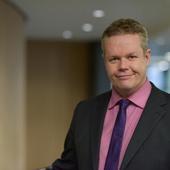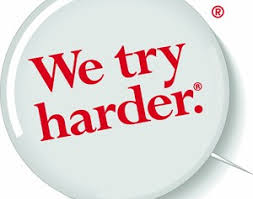Values in the age of coronavirus: how a disease changed what it means to live a virtuous life
The coronavirus pandemic has no parallel in living memory. The novelty of the virus itself is a massive medical challenge. But the pandemic is also a unique social problem for us all. In the face of such uncertainty, it is natural to look for clear reference points to help anchor us.
Current debate about appropriate policy reflects this need for certainty because it is dominated by two perspectives on values. These emphasise duties and consequences. We stay at home because it is our duty to protect health: “stay at home, protect the NHS, save lives”. But measures are also being taken specifically to guard against specific consequences – such as damage to the economy.
A third way of talking about values is to use the language of virtues. This offers a different way of framing situations that is both simpler and more complicated. It is simpler because its basic question, “what does it mean to live a virtuous life”, is easy to grasp. It is more complicated because instead of searching for laws, “virtue” depends on the context.
To study virtue involves studying the history, traditions, customs and habits of a society. This encourages us not to think in terms of particular decisions and whether they are right or wrong, but about behaviour over time. A key concern is character and this idea can be applied to consider any moral agent: a citizen, a political leader or even a government.
A conversation about virtues puts moral agents in their fullest social and political setting. For example, the citizen and their society are interrelated - with individual virtues tied to civic virtues. Famously, the virtuous Spartan was very different from the virtuous Athenian. Spartans were, “a byword for courage, strength, grim determination”. Athens was, “a model of cosmopolitan sophistication, artistic, cultural and philosophical excellence, and political innovation”.
These differences – a focus on context, traditions, customs, and behaviour over time – may be valuable in taking us away from a somewhat shrill public debate about trade-offs between duties and consequences. A virtue perspective also has an inbuilt flexibility that can help understand how our values change during crisis. It’s possible that the answers to questions like, “how do I live a virtuous life?” or “how do we build a good society?” are not the same as they were a few weeks ago. To show this, we can simply ask what virtues our citizens, politicians and governments exhibit – or lack.
Citizens
At a basic animal level, we are being trained in different habits. Some features of politeness are subtle and differ across cultures, but the basis of consideration in every society is now very obvious. We do not need to see masks to recognise the new bedrock of every moral code: it simply involves keeping a distance. We instantly recognise and appreciate this when others move away, perhaps by walking into a now empty road to give us space. These are fundamental, unspoken changes in how we use public space yet they have happened almost overnight.
Just being in public involves risk and this is changing our attitudes about the dignity and worth of many occupations, such as bus drivers, cleaners and warehouse workers. Society has been forced to understand more clearly what work is “key”. People will remember who enabled them to buy food for their families.
Like muscles, virtues can be thought of as emotions that have been trained. Lockdown may help to cultivate a sense of civic responsibility if people can connect personal sacrifices or discomfort to the broader public good. It is a kind of discipline that tests our patience but could also strengthen it (if it doesn’t spill over into mass frustration). It could also provide a sense of perspective and restore appreciation for simple pleasures.
Politicians
For politicians, the stereotypical virtues of the strong leader are under threat. As different nations find their own ways to manage what is essentially the same crisis, we are being made aware of different styles of governing. It is the grandest possible social experiment unfolding in real time and it has put less eye-catching virtues firmly on display.
New Zealand and Germany are two examples that have been cited. Instead of rewarding charisma, voters may start to prioritise competence and a capacity for sophisticated dialogue.
On the other hand, we need to be aware of the dangers that miseries like mass hunger and unemployment can bring. These can be the breeding ground for populism, a different social pathology that, “inflames and damages the cells, tissues and organs of democratic institutions”.
Governments
Governments’ failure to provide protective personal equipment is shocking. It forces raw, blistering insights into the everyday courage of care workers. Seen alongside the deaths of our most vulnerable elder citizens, it makes us question whether we have built a good society.
The coronavirus poses other huge challenges and perhaps even temptations for government. A crisis, and a common enemy, can benefit those in power. Recent British governments succeeded in part by making the most of two crises: the global financial crisis and Brexit. Austerity was fashioned into a rhetorical device to justify spending cuts. The promise of a referendum and Brexit helped win elections. Both were reliable sources of distraction, helping to displace blame and control the news cycle. The coronavirus is a bleaker, relentless crisis though. The same brutal questions will dominate the news. There will be continual comparison with other societies. Distraction may be impossible.
Messaging may be harder if citizens demand accuracy and experts. Boasts will not just win headlines and disappear. They will echo and haunt. Coronavirus is not the end of Athenian sophistication or political innovation. But citizens may want their governments to live the Spartan virtues they see in key workers: selflessness, courage, grim determination.
Kevin Morrell, Professor of Strategy, Durham University
This article is republished from The Conversation under a Creative Commons license. Read the original article.


















